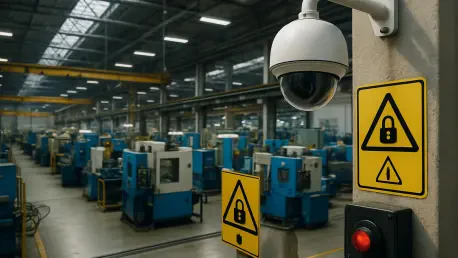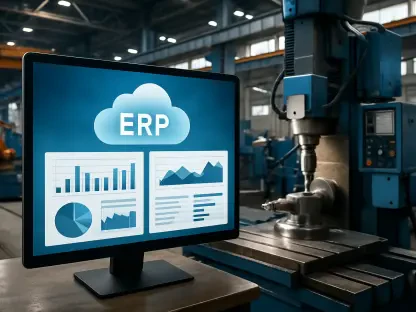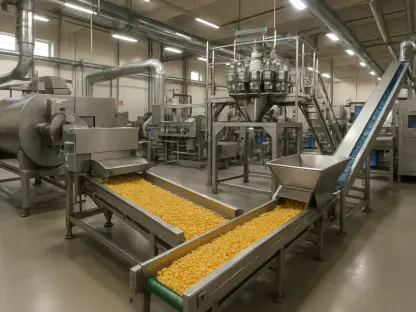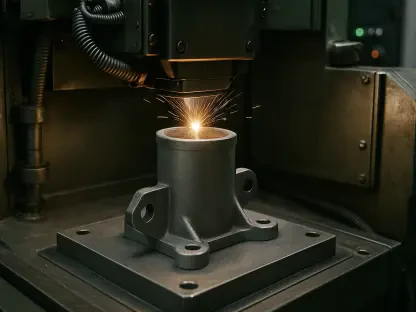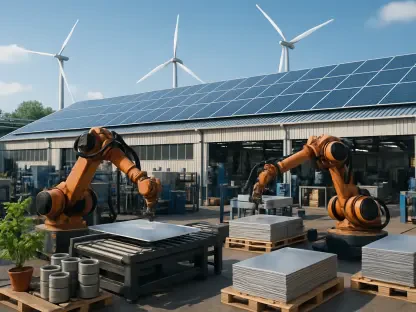Manufacturing faces unprecedented uncertainty driven by fluctuating market conditions, shifting tariffs, and workforce challenges in today’s global economy. The sector must rapidly adapt to survive and thrive amid these complexities. Manufacturers are increasingly looking to modern technologies, such as Enterprise Resource Planning (ERP) systems, Artificial Intelligence (AI), and Robotic Process Automation (RPA), as critical assets to navigate this unpredictable terrain. These technologies are not just tools for efficiency; they are essential resources for building agile processes and robust strategies that enable companies to respond effectively to evolving economic dynamics.
Embracing Technological Shifts for Resilience
Navigating Economic Fluctuations
Economic fluctuations have left the manufacturing industry grappling with rising material costs, unpredictable supply chains, and variations in product demand. Manufacturers must navigate these challenges while also benefiting from opportunities that may arise. Modern ERP systems, particularly cloud-based or hybrid models, offer real-time visibility into these economic variables. They collect data across different departments, allowing manufacturers to promptly identify bottlenecks and adjust operations accordingly. Integrating real-time analytics helps production teams manage inventory efficiently, minimizing the impact of sudden market shifts and avoiding the pitfalls of overstocking or stock shortages.
AI enhances these capabilities by optimizing data-driven processes through predictive analytics and machine learning, anticipating trends and potential disruptions. AI empowers manufacturers to forecast demand accurately, automate reorder processes, and reschedule production based on real-time market conditions, mitigating the adverse effects of tariff changes and supply chain disruptions. These capabilities ensure that operations remain agile and adaptable, fostering resilience amidst uncertainty.
Legacy Systems vs. Modern Solutions
Legacy ERP systems, typically characterized by siloed data and limited analytics, increasingly hinder agility. Manufacturers reliant on these outdated solutions face bottlenecks and inefficiencies, especially during workforce onboarding. As turnover rates and workforce shortages persist, these systems reveal their limitations. New staff often struggle with outdated interfaces, as ongoing reliance on tribal knowledge creates operational bottlenecks.
The modernization trend has seen manufacturers shift towards cloud-based ERP platforms, offering seamless data integration with ease of scalability. These modern systems eliminate inefficient processes, provide centralized control, and enable streamlined communication between departments. Hybrid solutions further demonstrate their advantages by seamlessly incorporating advanced technologies, enhancing overall operational efficacy. Transitioning from legacy systems to contemporary solutions may initially be challenging, but the long-term benefits are undeniable in fostering operational efficiency and improved data management.
Leveraging AI and RPA for Enhanced Productivity
AI-Powered Automation
AI’s integration within modern ERP systems marks a paradigm shift in manufacturing, where data-driven insights optimize operational processes. AI capabilities empower manufacturers to harness historical and real-time ERP data to anticipate future demand, aligning production schedules with market needs. Predictive analytics, combined with machine learning algorithms, offer manufacturers a robust framework to foresee potential disruptions and adjust operations proactively.
AI-driven tools enable automated decisions, such as triggering inventory reorders and rescheduling production to address unforeseen challenges. Such automation ensures manufacturers maintain the flexibility needed to adapt to changing market conditions swiftly. Predictive maintenance, powered by advanced analytics, significantly reduces the likelihood of costly operational downtime, preserving resources and improving efficiency. By integrating AI with ERP systems, manufacturers are better equipped to navigate economic challenges and enhance productivity amidst uncertainty, laying the foundation for sustainable growth.
The Role of Robotic Process Automation
The selection of RPA as a complementary technology is vital for manufacturers seeking to automate repetitive digital tasks traditionally processed by human staff. Tasks like invoicing, data entry, and transfers previously required manual input, introducing human error and operational delays. Automation through RPA alleviates such burdens, allowing the workforce to focus on more complex, strategic activities and optimize productivity.
RPA’s implementation addresses workforce challenges head-on, helping manufacturers cope with the diminishing pool of skilled labor. By reducing dependency on manual interventions and enhancing accuracy, RPA strengthens overall operational efficiency. This technology investment supports manufacturers in meeting production demands effectively and maintaining competitive advantages, especially when faced with ongoing workforce dilemmas. The integration of AI and RPA serves as a catalyst for manufacturers to realize unprecedented gains in innovation, expediting transformative advancements within the industry.
Strategic Modernization for Future Success
Transitioning and Implementation
Transitioning to modern ERP systems involves overcoming challenges inherent to factory floor pain points, including downtime and inventory management complexities. Factors such as stakeholder alignment and clear demonstrations of potential enhancements are crucial for successful implementation. Manufacturers must ensure solutions integrate AI and RPA seamlessly, offering quantifiable cost reductions and performance improvements.
Stakeholders require reassurance that modernization will yield tangible benefits, with comprehensive demonstrations underscoring anticipated outcomes. Such alignment assists in overcoming initial resistance associated with technological shifts, smoothing the transition process. Manufacturer investment in integrated, data-driven frameworks enhances operational efficacy as changes develop through robust ERP platforms powered by AI and RPA.
Ensuring Long-Term Benefits
Strategic modernization efforts are essential for manufacturers to maintain competitiveness in the fluctuating marketplace. Comprehensive modernization of the factory floor, including the integration of new technologies, will confer long-term benefits, ensuring sustained operational excellence. Implementing advanced ERP solutions within 15-24 months empowers manufacturers to harness enduring scalability, flexibility, and innovative opportunities aligned with evolving production needs.
These technologies continue evolving, adapting seamlessly to ongoing market changes while supporting manufacturers in meeting new industry standards and regulations. Securing future success is contingent upon embracing strategic modernization processes to achieve lasting enhancements, safeguarding operational resilience as industry dynamics transform. Building a cohesive data-driven framework aligns manufacturing processes with future growth, contributing to the industry’s advancement beyond uncertain economic conditions.
The Path Forward in Manufacturing
The manufacturing sector faces unparalleled uncertainty due to shifting market conditions, varying tariffs, and labor challenges in the current global economy. To survive and prosper in this intricate landscape, manufacturers must continually adapt. Recognizing the growing need for efficiency and flexibility, they are turning to modern technologies like Enterprise Resource Planning (ERP) systems, Artificial Intelligence (AI), and Robotic Process Automation (RPA) as vital tools. These technologies go beyond mere productivity enhancements; they are pivotal for developing agile processes and resilient strategies that allow companies to respond to changing economic conditions. By leveraging these digital solutions, manufacturers can streamline operations, anticipate trends, and address workforce issues more effectively. As the industry evolves, the integration of such technologies becomes essential for not only enhancing operational efficiency but also ensuring long-term success and competitiveness in an unpredictable market environment.
